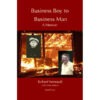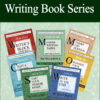
Going Deeper in a Memoir: Look at “Life’s Failed Contracts”
This post is about going deeper in a memoir, deeper even than you thought you could go when you started. This may be hard, but take a look at the contracts with life we make and the terrible disappointment that inevitably comes from making them. All of us at some time or other have made such a contract with life—in fact, we make them over and over again until we finally grow up and become present to the unfolding reality. [Free Membership required to read more. See below. ]
We'd love to have you access this content. It's in our members-only area, but you're in luck: becoming a member is easy and it's free.
Already a Member?
Not a Member Yet?

Show Don’t Tell Your Characters, or Don’t Describe Your Characters–Show Them!
The old adage “Show, don’t tell your characters!” is as true as ever. It is one technique that will always improve your writing. I admit that there is some great writing that makes a precedent for “tell,” but as a rule, “show” is more effective.
1. Your computer and its keyboards are your movie camera. Show Don’t Tell Your Characters.
In a film, a director ( that’s you!) doesn’t have an actor go on screen to tell the audience that someone is angry. Instead, he shows the character in a scene where anger is in action. [Free Membership required to read more. See below. ]
We'd love to have you access this content. It's in our members-only area, but you're in luck: becoming a member is easy and it's free.
Already a Member?
Not a Member Yet?

Your Memoir: Write with Your Audience in Mind
This video is about niche writing and how to write with your audience in mind.
Many writers of memoir do not write keep their audience in mind.
It is perhaps inevitable that writers indulge time in a certain fantasy that their book will appeal to a large audience and be popular. Unless you are already famous—like Michelle Obama or Harry Windsor—or writing about an experience that was in itself very well known—a major flood or a nuclear disaster, for instance, your book is not likely to interest a large audience that would propel it into a best seller status.
Look for your Niche: Write with Your Audience in Mind
[Free Membership required to read more. See below. ]
We'd love to have you access this content. It's in our members-only area, but you're in luck: becoming a member is easy and it's free.
Already a Member?
Not a Member Yet?

Similes and Metaphors: Don’t Let Them Scare You!
“I don’t quite know how to describe what I’m feeling,” you might say during your writing as you grope for a way to describe in words this emotion that is beyond words. There is a solution to this dilemma that writers often resort to—but too many writers are sure they can’t handle it. The solution? It is the use of images, specifically similes and metaphors. These will bring your text to a level beyond words.
Not sure how to handle these literary techniques? Not to worry. The following article explains much. You will read examples of similes and metaphors and learn the difference between similes and metaphors.
1. A simile is a comparison that uses like or as.
When you say, “Life is like a merry-go-round”, you are making an image we call a simile—even if it’s not a terribly original one. It’s a simile, too, if you write, “I’m busy as a bee.” In a simile, because of the use of like and as, it is clear that the writer is making a comparison. Here is an example of a simile:
My love is like the red, red rose/That’s newly sprung in June, /My love is like the melody/That’s sweetly played in tune. —Robert Burns
[Free Membership required to read more. See below. ]
We'd love to have you access this content. It's in our members-only area, but you're in luck: becoming a member is easy and it's free.
Already a Member?
Not a Member Yet?

Writing Process Steps—Linger With Your Story
One of the writing process steps is to linger with your story. Many, and perhaps most, people write too fast. I don’t mean that they end up with a text characterized by sloppy grammar, spelling problems and chronology issues—although that may be the case, of course.
No, what I mean is that they push through the process of writing their stories much too quickly. They end up with only a part of the story they could have written had they lingered.
So many times in my workshops, I have found it easy to tell those manuscripts that have been lingered over from those that have not. As somebody’s face reveals Irish ancestry or Italian heritage, a piece of writing reveals its past.
There is a quality to a piece that has been rushed that is easily discernible to anyone who has learned to write more slowly. So…learn to linger with your story.
One of the essential writing process steps
1. When you don’t take the time to linger with your story, you generally are unable to feel the full import of your memoir.
[Free Membership required to read more. See below. ]
We'd love to have you access this content. It's in our members-only area, but you're in luck: becoming a member is easy and it's free.
Already a Member?
Not a Member Yet?

Writing Feelings into Your Memoir
Recently, David asked in an email about “writing feelings into your memoir,” about writing a memoir that, if I am understanding him right, is not all details and facts.
Below is my response which can serve as a stand-alone article to help you write your own memoir.
Leave a comment below expressing your experience of writing feelings into your memoir.
—
Here are some of my suggestions for writing feelings into your memoir:
[Free Membership required to read more. See below. ]
We'd love to have you access this content. It's in our members-only area, but you're in luck: becoming a member is easy and it's free.
Already a Member?
Not a Member Yet?

The Theme-focused Memoir
While many of the people whom I have helped to write a memoir have come ostensibly to write about their lives – to celebrate some achievement, I would say that many of these people are also writing a mission-driven memoir, a theme-focused memoir.
Behind the desire to tell about their lives, there is some intent to promote a point of view. This comes under many guises. Generally, of course, this point of view is called “theme.”
The theme-focused memoir is the most common model.
Writing a manuscript only of one’s experience—the dates, the facts, the activities—may often not enough to entice the reader—at least, it will not interest the reader who is not family and friends. [Free Membership required to read more. See below. ]
We'd love to have you access this content. It's in our members-only area, but you're in luck: becoming a member is easy and it's free.
Already a Member?
Not a Member Yet?

Become Good at Memoir Writing
Twice a week or so, the Memoir Writer’s Blog posts a new article. I write about a variety of topics and most of them are not in sequence with what I have written previously. My only logic is to help you become good at memoir writing —better and better with every post.
I write in the Memoir Writer’s Blog as fancy takes me. Most readers, as I am guessing, probably do not prefer to learn in a structured manner and have to wait for the next article in the sequence. What I write today may very well be the very topic s/he needs to keep going even if the memoir writer had not known that before reading the post on The Memoir Writer’s Blog.
There is a way of sequencing the articles to some extent.
Is there a best way to read the Memoir Writer’s Blog?
Read the Memoir Writer’s Blog as a way to create a context for you to delve into your memoir on a given day—today perhaps. Any one of the many posts can serve you as an entry point into the day’s creation.
Perhaps it is early in the morning (or at least it is time for you to write so you are early in your writing period for the day). You turn your computer on, sip your coffee or tea, wonder about your day and about what you might write. You know you are going to write a portion of your memoir—or perhaps it is a memoir you are writing of one of your parents or of your spouse. Soon your RSS feed informs you there is a new post from the Memoir Writer’s Blog. You are not quite ready to start writing so you dawdle a bit and read the post. It is about technique—perhaps on beginning a section or perhaps about creating vivid character. Well, it makes sense and you decide to implement the suggestion. Or…
Perhaps you are feeling overwhelmed. You have been at this writing so long! Is it really worth continuing? You begin reading today’s post. It is a piece of memoir, the piece about when my mother’s aunt left to go back to Canada and suddenly you realize how much you want to tell the story of your aunt who died when you were twelve and how you loved her and you begin to write that. It is out of sequence but you know you can connect it later to the rest of the story. Or perhaps, before you set in to write, you turn to more of the stories of my mother—and are pleased to find so many excerpts from her memoir. You want to see how I have handled her story or perhaps simply to live for a while in another era before you begin to write about your aunt. Or…
Skill-specific posts in the categories help you become good at memoir writing

Perhaps you have been questioning whether you have enough skill in presenting action effectively and you turn to the categories of the blog and, sure enough, you find there a category labeled “action” under technique and you click on it. You discover several articles on how to create more effective action. In fact, you are reminded that action is not synonymous with “interesting” but that action like character and setting has to be better crafted. Or…
Perhaps it is not motivation or craft that is stopping you but the process itself. You have been having trouble with the pre-writing function and you check the blog categories and find several excellent articles on pre-writing and, before you do anything today, you read (or re-read) these articles on The Memoir Writer’s Blog. They ground you, and you move on to the writing you wish to accomplish today.
It is now clear to you that this blog, the Memoir Writer’s Blog, is an effective tool to learn to be a much better memoir writer. You turn to your spouse or perhaps your friend and say, “I’m getting a writing education from the Memoir Network’s blog. That’s why I turn to it whenever I commence to write.”
Then you forward a link to the Memoir Writer’s Blog to someone you know who is writing. You know the post you are alerting your friend to will have the same effect on him/her it had on you.
So that’s how I hope you read the Memoir Writer’s Blog.
What’s in the Memoir Writer’s Blog for you?
1. Regular, even daily, inspiration and motivation to write.
2. Education in both craft and process that will permit you to write the best memoir you are capable of. You can become good at memoir writing.
Become good at memoir writing.
You can, of course, read the Memoir Writer’s Blog for entertainment, as a way of making a diversion for yourself so you don’t have to do the work that is the focus of the Memoir Writer’s Blog, but I hope you won’t do this. It’s not the way to become good at memoir writing.
We usually publish two posts per week on a variety of topics in the Memoir Writer’s Blog. Keep coming and keep checking the categories and tags for topics that will help you to succeed. Subscribe via the FOLLOW at the bottom right of the page where you find this entry. When you do, you will receive a notice of every new post.
Keep writing. Let this be the year you write and publish your memoir.
[Free Membership required to read more. See below. ]We'd love to have you access this content. It's in our members-only area, but you're in luck: becoming a member is easy and it's free.
Already a Member?
Not a Member Yet?

Only Telling the Truth in Your Memoir Will Set You Free
I urge all readers to commit to telling the truth—100% of it—in their memoir. It’s the only way you will get to the truth—and as they say, the telling the truth will set you free.
